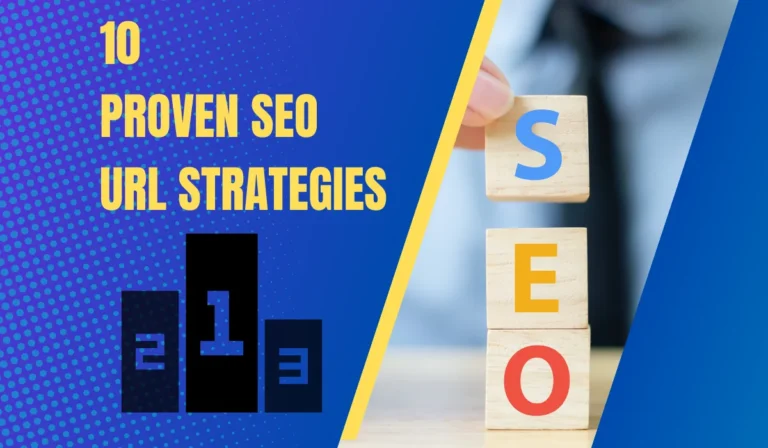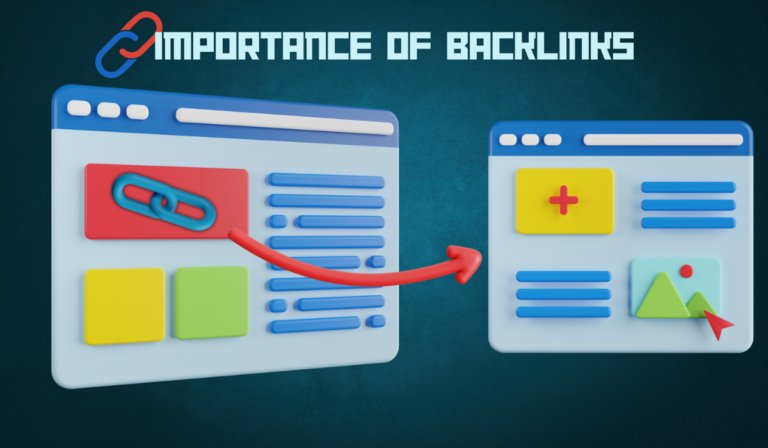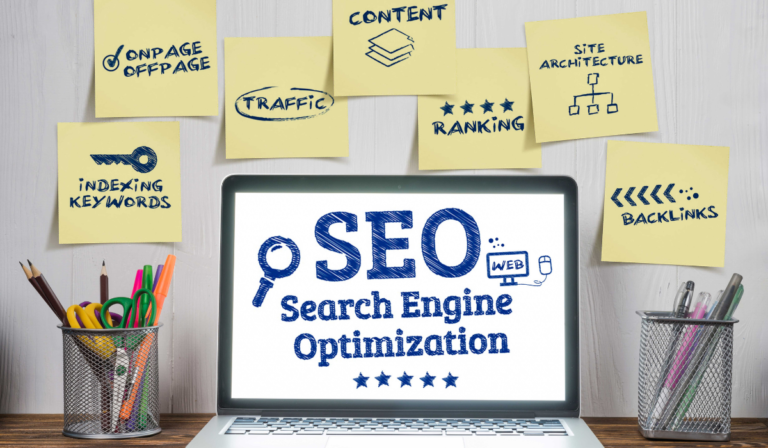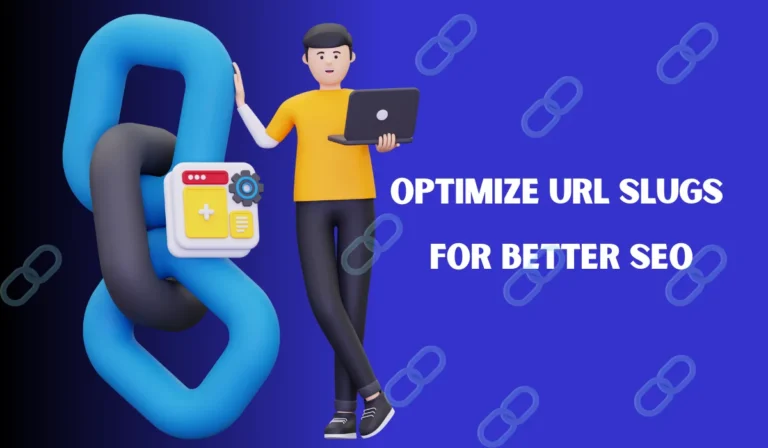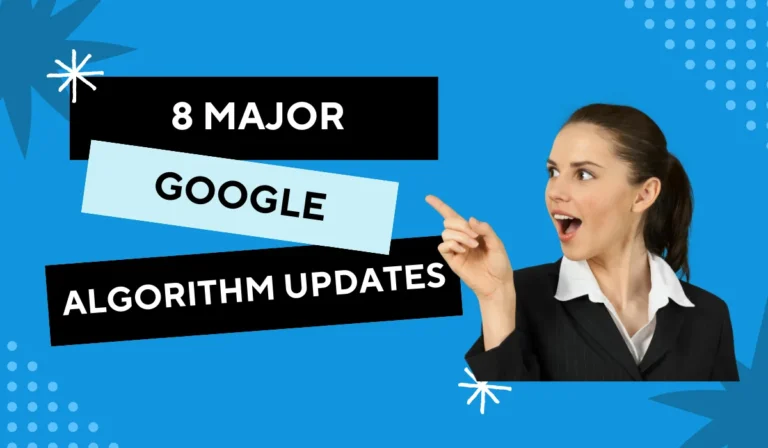On-Page and Off-Page SEO Mastery: Supercharge Your Rankings
Within the vast realm of SEO, two vital aspects hold the key to your website’s success: On-Page and Off-Page SEO.
In the ever changing field of Search engine optimization, it gets overwhelming for the beginners to bring their presence online and maintain it. With over 200 factors to consider, it’s natural to feel anxious and unsure about where to begin.
Once you grasp the fundamentals of these different optimization types, you’ll have the power to create a well-rounded and effective SEO strategy.
To stay ahead in the digital landscape, understanding and implementing On-Page and Off-Page SEO practices is crucial.
On-Page SEO refers to optimizing various elements within your website to improve its search engine ranking, while Off-Page SEO focuses on actions taken outside your website to enhance its authority and credibility.
Excited to learn more?
Let us delve into these two techniques – On Page and Off Page SEO, explore their nuances, and provide you with actionable strategies to optimize both aspects for your website’s success.
What is On-Page SEO?
One of the most effective ways to improve a website’s search engine rankings and attract more visitors is through On-Page SEO.
On-Page SEO, also known as On-Site SEO, refers to the practice of optimizing individual web pages to improve their visibility and rank higher in search engine results.
Unlike Off-Page SEO, which involves external factors such as link building and social media engagement, On-Page SEO focuses on the content, structure, and elements that are directly within the control of website owners and administrators.
Key Components of On-Page SEO:
Quality Content:
Content is the backbone of any website, and search engines are built to prioritize high-quality, valuable, and relevant content.
When optimizing a page, it’s crucial to create original, informative, and engaging content that aligns with the search intent of the target audience. Incorporating relevant keywords naturally within the content can also boost its SEO potential.
Keyword Research:
Keyword research is a crucial step in On-Page SEO. By understanding the words and phrases users use to search for information, products, or services, website owners can strategically integrate these keywords into their content and meta elements.
Tools like Google Keyword Planner and SEMrush can help identify relevant and high-traffic keywords to target.
Title Tags:
The title tag is an HTML element that specifies the title of a web page. It appears as the clickable headline in search engine results and browser tabs.
Crafting a concise, descriptive, and keyword-rich title tag is essential, as it not only influences search engine rankings but also influences user click-through rates.
Meta Descriptions:
Meta descriptions are brief summaries of a web page’s content that appear beneath the title tag in search results.
While they don’t directly impact rankings, well-crafted meta descriptions can entice users to click on your link, potentially increasing organic traffic to your website.
URL Structure:
Creating a clean and descriptive URL structure is crucial for both search engines and users. Including relevant keywords and organizing URLs logically can help search engines understand the page’s content better and make it more user-friendly.
Header Tags (H1, H2, H3, etc.):
Header tags are used to create hierarchical structures within content, making it easier for search engines to grasp the content’s organization.
The H1 tag represents the main heading of the page, followed by H2, H3, and so on, for subheadings. Properly utilizing header tags can improve the page’s SEO and readability.
Image Optimization:
Images can enhance the visual appeal of a webpage, but they can also affect the page’s loading speed if not optimized correctly.
Compressing images and providing relevant alt text helps search engines understand the image’s content and improve the overall accessibility of the website.
Internal Linking:
Internal linking involves connecting different pages within the same website through hyperlinks. This practice helps search engines crawl and index pages more effectively, distributes link authority throughout the site, and enhances user navigation, leading to a better user experience.
Page Loading Speed:
Page loading speed is a critical factor in both SEO and user experience. Websites that load slowly tend to have higher bounce rates, negatively impacting search engine rankings. Optimizing images, leveraging browser caching, and minimizing HTTP requests are some techniques to enhance page loading speed.
Mobile Responsiveness:
With an increasing number of users accessing the internet through mobile devices, having a mobile-responsive website is essential. Search engines favor mobile-friendly sites in their rankings, and failing to optimize for mobile may result in a significant loss of organic traffic.
Why On-Page SEO Matters:
On-Page SEO is vital for several reasons:
- Improved Search Engine Rankings: Properly optimized web pages have a better chance of ranking higher in search engine results, leading to increased organic traffic.
- Enhanced User Experience: By providing valuable content and easy navigation, On-Page SEO contributes to a positive user experience, reducing bounce rates and increasing user engagement.
- Relevance to Search Intent: On-Page SEO helps align web pages with user search intent, ensuring that visitors find what they are looking for, which can lead to higher conversion rates.
- Better Visibility: Well-optimized pages are more likely to be crawled and indexed by search engines, leading to better overall visibility in search results.
- Competitive Edge: In today’s competitive online landscape, On-Page SEO can give websites an edge over their competitors by delivering better-optimized content and user experience.
What is Off-Page SEO?
Off-Page SEO refers to the actions taken outside of a website to improve its search engine rankings and credibility.
Unlike On-Page SEO, which involves optimizing content and elements within the website, Off-Page SEO involves activities conducted on other web properties to promote and endorse the target website.
Key Components of Off-Page SEO:
1. Backlinks:
Backlinks, also known as inbound links or incoming links, are links from external websites that point to the target website.
Search engines view backlinks as votes of confidence and trust in the content and authority of the linked website. Websites with a higher number of quality backlinks from reputable sources tend to be seen as more credible and may achieve better rankings in search engine results.
2. Link Building:
Link building is the process of actively acquiring backlinks from other websites. It involves outreach, content promotion, guest posting, and other strategies to encourage other website owners to link back to the target website.
However, it’s essential to focus on acquiring high-quality, relevant backlinks from authoritative websites, as low-quality or spammy links can lead to penalties from search engines.
3. Social Media Marketing:
Active participation in social media platforms can contribute to Off-Page SEO. Engaging content shared on social media can attract attention and generate backlinks, increasing the website’s visibility and reach.
Additionally, social media signals, such as likes, shares, and comments, can indirectly influence search engine rankings.
4. Brand Mentions:
Brand mentions occur when a website or business is mentioned on other web properties without a direct link. These mentions can also signal authority and popularity to search engines, positively impacting the website’s Off-Page SEO.
Monitoring brand mentions and seeking opportunities for unlinked mentions to be turned into backlinks can be a part of an effective Off-Page SEO strategy.
5. Influencer Marketing:
Collaborating with influencers or industry leaders can amplify a website’s reach and attract a broader audience.
When influential figures promote or mention a website, it can lead to increased brand visibility, traffic, and potential backlinks, all of which contribute to Off-Page SEO.
6. Content Marketing:
Creating valuable and shareable content can naturally attract backlinks from other websites. Informative blog posts, infographics, videos, and other forms of content that resonate with the target audience are more likely to be shared, increasing the chances of gaining valuable backlinks.
7. Online Reviews and Ratings:
Positive online reviews and ratings on review websites can enhance a website’s reputation and credibility. Search engines may take into account the sentiment and frequency of reviews when assessing a website’s authority and relevance for specific searches.
Why Off-Page SEO Matters:
Off-Page SEO plays a crucial role in determining a website’s online visibility and authority. Here’s why it matters:
- Backlink Influence: High-quality backlinks from authoritative websites can significantly impact a website’s search engine rankings and organic traffic.
- Credibility and Trust: A strong Off-Page SEO presence, including positive reviews and brand mentions, contributes to a website’s credibility and trustworthiness in the eyes of both users and search engines.
- Wider Audience Reach: Engaging in Off-Page SEO activities, such as social media marketing and influencer collaborations, can expose the website to a larger audience and potential customers.
- Competitive Advantage: A well-executed Off-Page SEO strategy can help a website stand out from its competitors, especially in highly competitive industries.
Conclusion
Mastering both On-Page and Off-Page SEO is essential to achieve sustainable and long-term success in the digital landscape.
By optimizing your website’s content, structure, and engaging in off-site activities, you can enhance your website’s visibility, authority, and trustworthiness in the eyes of search engines and users.
Embrace these strategies, stay updated with SEO trends, and consistently provide value to your audience to ensure your website’s steady climb up the search engine rankings.

